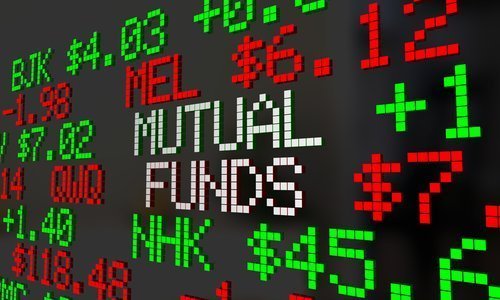About mutual funds – Today, the stock market is somehow very unpredictable, to an extent that it has instilled a lot of fear among investors.
Most people tend to view the stock market as a risky venture.
Even those firms that had initially proved themselves strong and capable of lasing forever have dwindled in the financial misfortunes.
There are those who have capital for investment but they are reluctant to do sodue to fear.
Mutual funds offers a more diversified and less risky investment option for these cautious individuals.
Before investing in mutual funds, one need to understand some basic information about mutual funds.
First, you should understand the difference between individual stock investment and mutual fund investment.
Traditionally, it was made up of multiple individual stocks.
That is to say, initially the value of individual stocks were summed up and then the total amount divided by the number of its shares that has been issued.
The result was the value and actually the price per share of the mutual fund.
Today, mutual funds have diversified a lot in regards to the types of investments featured so its best to learn all about mutual funds before moving forward.
These funds exists in what are fully invested individual commodities like oil or in commodity markets while others features bonds.
Most of large mutual funds offered consists of several investment options.
This makes them very resilient to market fluctuations, a situation common with the stock market.
High yield mutual funds are those funds that focuses on risky investment like junk bonds and delivers very high returns.
Types of Mutual Funds And About Mutual Funds
Once you make a decision on what you want to invest your funds in, the next decision is your preferred type of mutual fund.
Basically, there are two options you can choose from as far as these funds are concerned.
You may choose between loaded mutual funds and no-load mutual funds so you know about mutual funds.
Another choice that you have to make is between open-ended and closed-ended mutual funds.
Loaded Funds And No-Load Funds
A loaded fund is the one that requires an investor to a certain commission.
The commission can be paid during the time of purchase, when selling the shares, periodic intervals or a combination of the three.
The benefit of paying these loads is the premium services provided to the investor by their specific brokers.
In contrary, these commissions are not charged in no-load mutual funds though other fees are charged.
You’re always expected to pay a certain amount of fee though you can offset these fee by making careful choices and making bulk purchases and this is why its important to know about mutual funds.
Open-Ended And Closed-Ended Funds
Traditionally, open-end funds are what are thought to be mutual funds.
These are basically funds that recalculated on a daily basis and new shares issue out to investors depending on the daily returns.
Closed-end funds, on the other hand are often traded on the stock markets throughout the day in the form of the so-called Exchange Traded Funds (ETF).
This type of mutual funds is associated with very rare issuance of new shares and to redeem your cash as investor, you have to wait till the fund liquidate.
The existing shares are usually traded instead of new ones created.
The information on mutual fund is very wide and extensive, with lots of learning processes involved.
If you’re considering investing in this field, it would be wise if you seek knowledge from the available information about mutual funds to be found on Google.
Smart investing requires that one arms himself/herself with all the necessary skills as this is an intricate financial channel.

